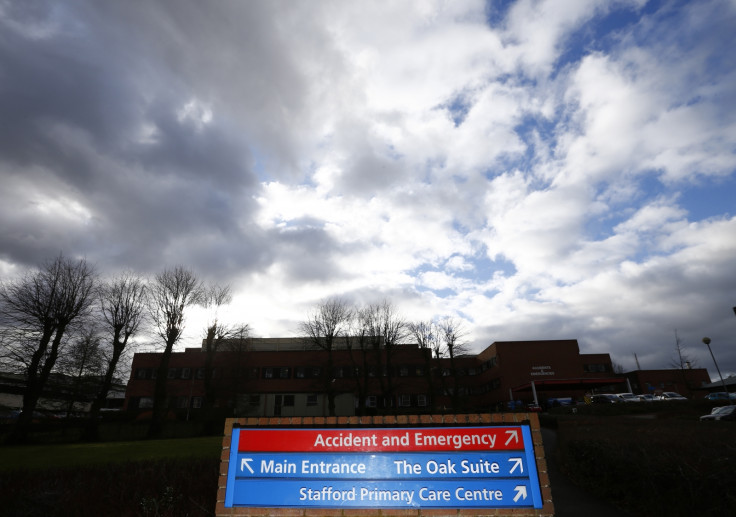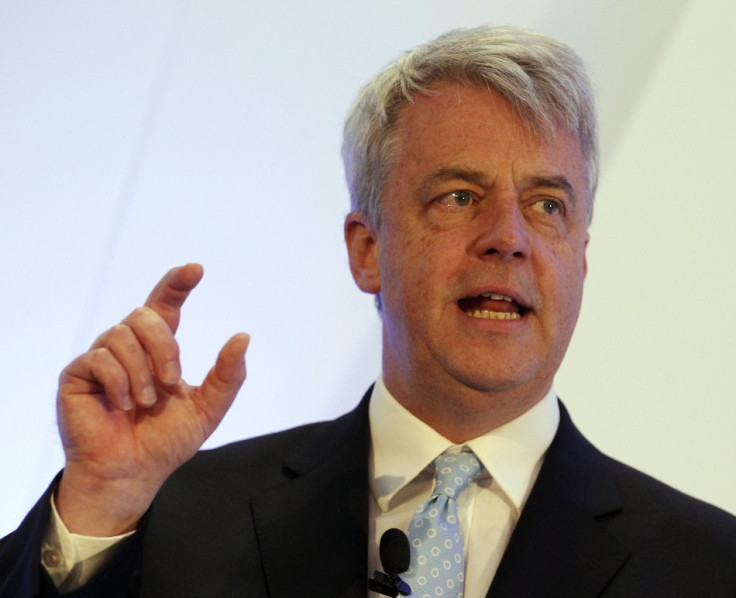Tory Regret Over NHS 'Gobbledygook' Reforms Smack of Pre-Election Stunt

Only the most cynical would raise an eyebrow over the timing of revelations that the government believes NHS re-organisation was its biggest mistake, wouldn't they?
On the very day thousands of NHS staff went on strike over the government's decision to over-rule the independent pay review body and deny them a 1% increase it was reported that Chancellor George Osborne wished he had strangled Andrew Lansley's huge reforms at birth.
The claims have also conveniently come just days after the political party conferences during which all four party leaders, including Nigel Farage, had attempted to prove they were the most NHS-friendly of the lot.
David Cameron, in particular, staged an emotional "how dare they" attack on Labour for suggesting he was out to wreck the service.

The effect of four weeks or so of politicians squabbling over the health service suggested it was likely to be one of the biggest issues during the general election campaign.
It always is. Forget Europe or human rights, which never feature high in voters' concerns at election time, it is the health service that year after year comes near the top of that list.
And it has become increasingly obvious over the past couple of years that the government's approach to the service has been not quite what they put on the tin in 2010.
Ring fencing spending was all well and good, but it did nothing to address the inflation-busting costs of the service or the extra spending required to meet the demands of an ageing population.
It doesn't help when it appears it is nurses and porters who are forced to foot the bill through pay cuts and increased work load.
It is also the case that, by constantly focusing on the small number of, admittedly appalling failures in the service, the government has appeared to do everything it can to destroy the untouchable position the NHS once held in the public consciousness.
Meanwhile, the suspicion that the real aim of the reforms was to privatise the NHS have not be calmed by ministers' persistent refusal to say if there is any limit to the amount of private provision that should be allowed into the service.
Now, according to The Times newspaper, one insider said Lansley's reform proposals were "unintelligible gobbledygook" while an ally Osborne's said: "George kicks himself for not having spotted it and stopped it. He had the opportunity then and he didn't take it."
A former No 10 adviser also told The Times: "No one apart from Lansley had a clue what he was really embarking on, certainly not the Prime Minister. He [Lansley] kept saying his grand plans had the backing of the medical establishment and we trusted him. In retrospect it was a mistake."

The confession also highlights the fact that, in the early days of the coalition, the prime minister prided himself on giving ministers like Lansley and then education secretary Michael Gove their heads without getting too involved in the details of their reforms.
Now the general election is drawing near, both these massive, radical reforms have been subject to closer scrutiny and found wanting.
Lansley was removed some time ago to be replaced by the more user-friendly Jeremy Hunt while Gove's sacking saw huis replacement Nicky Morgan charged with trying to heal the rift with teachers.
However, there will be no public apologies or expressions of regret from the prime minister over these two hugely disruptive and, some say destructive reforms.
And with the service facing real cash shortages, with the Kings Fund suggesting a quarter of trusts will be in difficulties this year, and winter approaching, private expressions of regret are unlikely to help the Tory campaign to be seen as the party to trust on the NHS.
© Copyright IBTimes 2025. All rights reserved.






















